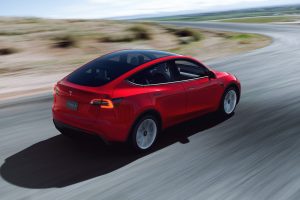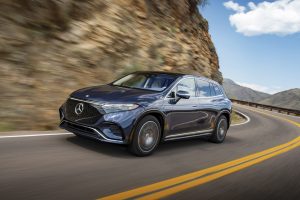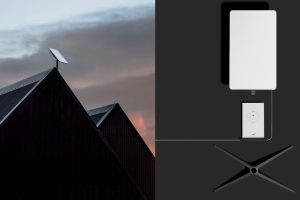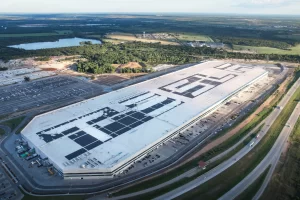Volkswagen has accidentally revealed its plans to change its United States operations to “Voltswagen,” a play on words to its electric vehicle push globally. A leaked press release, that has now been deleted, showed there would be several changes, even though they were set to be announced in about a month.
The press release was caught by CNBC earlier today and called Volkswagen’s sudden name change a “public declaration of the company’s future-forward investment in e-mobility.” The new name aligns with Volkswagen’s current plan to ditch gas cars completely by 2026. An anonymous CNBC source confirmed the authenticity of the press release, but the document wasn’t set to be released until April 29th.
The details of the press release revealed several small cosmetic changes would be made to VW’s lineup of vehicles. The fully-electric vehicles will be fitted with an exterior badge that shows the new “Voltswagen” name, while gas vehicles will only outfit the notorious “VW” logo. With nearly 100 years of automotive history to look back on, Volkswagen cars that are not EVs will still have the dark blue colored logo, with the new all-electric models utilizing a light blue coloring to differentiate “new, EV-centric branding.”
Voltswagen of America will remain an operating unit of the parent Volkswagen Group of America, headquartered in Herndon, Virginia. It is still ultimately owned by Volkswagen AG, which is headed by its EV-focused CEO Herbert Diess.
The published press release was incomplete, as more quotes and photography from the company’s Chattanooga, Tennessee, production plant wasn’t included. The Chattanooga plant will be home to in-house battery cells, thanks to a planned EV cell manufacturing plant that VW announced in August 2020. “Volkswagen has begun expanding its Chattanooga factory to build a North American center for electric vehicles – not only for assembly, but for engineering the EVs of the future,” the company said. “To power those efforts, Volkswagen’s Engineering and Planning Center in Chattanooga will soon feature a unique, state-of-the-art high-voltage laboratory designed to develop and test electric vehicle cells and battery packs for upcoming models assembled in the United States.”
At Volkswagen’s recent “Power Day,” it revealed a new unified battery cell, along with plans to build six cell production facilities throughout Europe. It also revealed partnerships with several European utility companies that will work to install a charging infrastructure throughout the continent. The company plans to have at least 70% of its Volkswagen brand’s sales in Europe be battery-powered vehicles by 2030, a doubling of its previous target. In the U.S. and China, the automaker is preparing for 50% of its sales to be electric.





